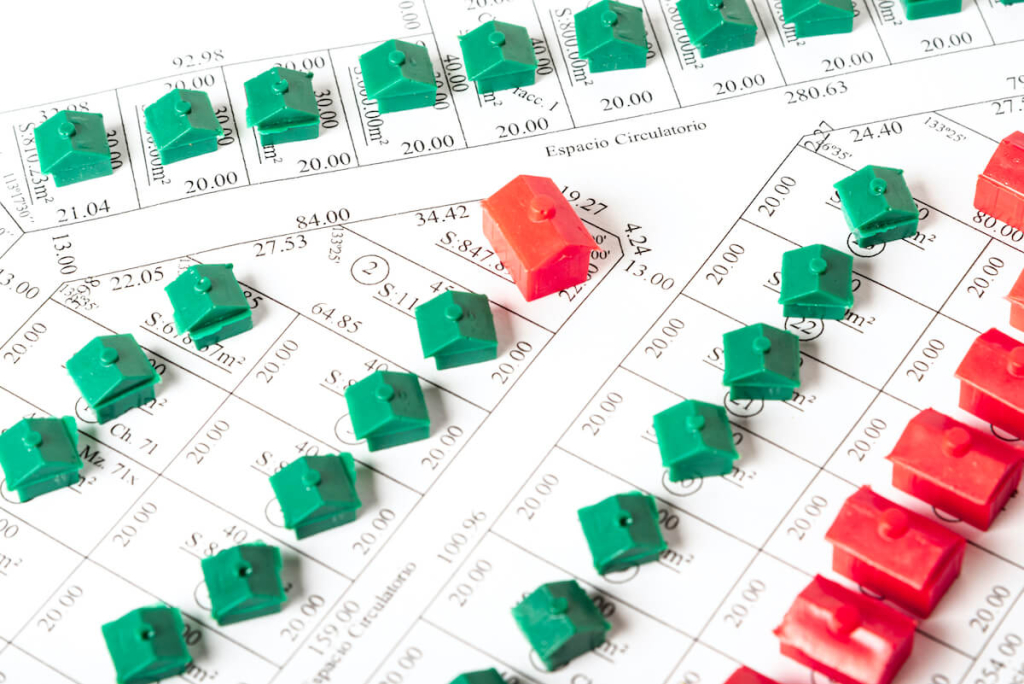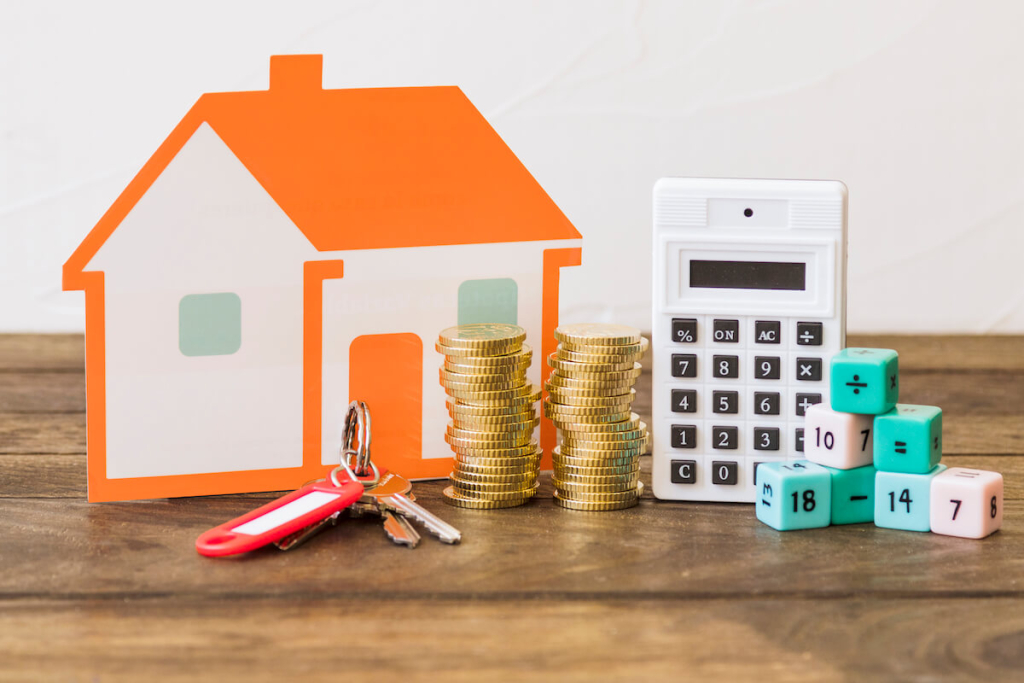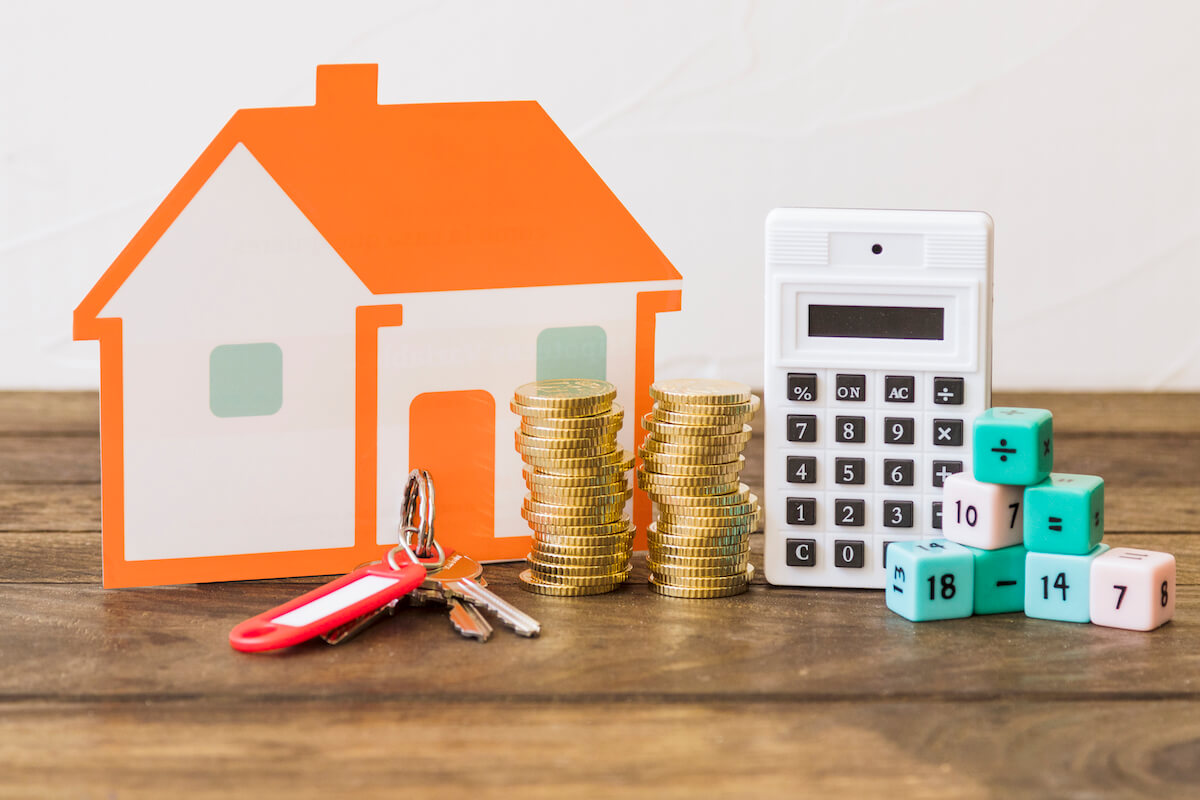
Despite the increase in house prices, the real estate business continues to thrive, even during the onslaught of the pandemic. It is fortunate for the real estate sector to keep afloat, given that most businesses have experienced recession and even bankruptcy.
Existing factors like the state of the country’s economy, interest rates, population growth, inflation, socio economic factors, high prices of existing real estate properties, as well as the shortage of inexpensive, conveniently situated properties inside urbanized areas are just a few of the many existing and emerging factors that affect house prices in the Philippines.
There are also factors driving the prices of any type of real estate property, such as demographics, real estate and property trends, property location, the country’s government policies and regulations applying to the real estate market, and the target market of real estate developers, including local and foreign investors.
Many factors drive the increase in house and lot prices, and we are here to divulge why.
Why Should You Invest in Real Estate?

Choosing to invest in real estate, among other investment options in the Philippines, is what most investors and even foreign investors prefer because of its many benefits, and one of these beneficial reasons is the excellent return on investment that you can gain from it. Moreover, the fact that real estate is considered a tangible asset is more than enough reason for you to be persuaded to invest in one.
Investing in real estate is equivalent to high profit if you want to sell your property in the future. In addition to this, you should also note that such properties’ value appreciates over time. Depending on critical factors that may affect the increase or decrease in its prices, you can always have a guarantee of good returns when it comes to having your money’s worth with real estate.
Factors That Determine Real Estate Prices
The Type of Real Estate Property
Identifying the type of real estate property you are dealing with is essential in determining its market value. Single-family homes are generally more expensive than condominiums and townhouses, which can attract buyers who prefer more space and privacy. When it comes to wise financing decisions, the type of real estate property that you want to invest in to is one of the primary things that you should consider.
Apartments, which may come with shared amenities such as swimming pools and gyms, can also be attractive for buyers looking for a more convenient way to live. Moreover, commercial or establishment properties, such as shopping malls and office buildings, are much more expensive due to higher potential returns.
Location
Wherever you go and whoever you ask, the location of a residential property is consistently included among the factors that affect house prices, and does not guarantee any fixed rates. A house, a condominium, or a lot-only property located in an urbanized and desirable area, such as near the financial and business districts of Makati or Quezon City surrounded by shopping malls and other prime establishments, will naturally fetch a higher price than properties located in a rural area. This is mostly true in any kind or house or property, and if ever you want to dig in further on other related searches with regards to the location of any type of property you would be interested to invest in, you may seek advice from a real estate agent who may have proper knowledge on financing, selling, and other facts about real estate properties in a country.
The proximity to amenities, such as schools, hospitals, and shopping malls, can also affect the prices. People purchase a house or a condominium, not just for what is inside. They also want to consider its location, convenience, and accessibility and how it can benefit their lifestyle. Urbanization and gentrification can affect how much a property is worth, also affecting its market value. Due to increased demand, property values often rise as more businesses and people move into a specific area.
Age and Maintenance
Usually, an older property is always cheaper than a newer one. As any property ages, it will likely require more upkeep and maintenance repairs, making it less attractive to potential buyers or foreign investors. The building materials used in older properties may need to be updated, as they cannot meet current health and safety codes, which can be a turn-off for some buyers. On the other hand, a newly constructed property is usually more enticing and is sure to possess a higher market value due to its modern amenities and updates.
Size
Commonly, the size of a property is always a determinant when assessing its price. Larger properties are, of course, more expensive, especially if it is situated in an area with limited land availability. The property’s condition, such as the soil quality, can influence its price and market value. Moreover, any improvements to the property, such as swimming pools, garages, or additional rooms, may also affect the price substantially, making it more expensive.
Current Condition of the Property Upon Buying or Selling
The condition of a property is also very important. Any residential or real estate property in good condition upon selling will permanently be attached at a higher price. Houses that need more repairs and further maintenance are commonly more affordable.
Depending on your needs and preferences, either option is still a good investment. Innovative and modern technology included in any property bought or sold, such as modern appliances or energy-efficient technology, can affect the price increase and the market value of any real estate property.
The Philippine Economy
It is an inevitable fact that a country’s economy will always affect the prices of everything in it, thus, making it a great factor affecting the price of real estate properties. Suppose the Philippine economy is growing, and there are more jobs available. In that case, people will have more financial capacity to buy a property, resulting in its increased demand and, with it comes higher house prices. However, suppose the economy in our country is in a recession. In that case, potential buyers may be discouraged from buying due to a lack of financial resources, making them opt for cheaper options as they prioritize food and other basic needs other than a home. Foreign investors may also be discouraged to invest in any country with little or no progress in its economic status.
The Law of Supply and Demand
The balance between supply and demand plays an important economic role that affects the prices and fixed rate of real estate properties, whether for residential or commercial purposes. The law of supply and demand applies to all kinds of businesses, including real estate. When demand for property is high, but there is a limited supply, prices will go up. However, if the supply exceeds the demand, prices will also be forced to go down.
Interest Rates
This financing factor is always present in any list of reasons why house prices increase or decrease in value and price. When interest rates are low, it generally makes it easier and more affordable for people to secure a mortgage, making real estate properties a more enticing investment for an individual. But when interest rates are high, fewer people can afford to buy any property, so real estate developers will usually sell them at lower prices due to low demand.
Government Policies and Regulations on Real Estate
Government policies, legislations, government programs, government subsidies, and government regulations on real estate significantly influence the prices of any property bought and sold in the Philippines. Government-sponsored initiatives, such as home ownership assistance programs, can encourage more people to purchase a property. Restrictive policies regarding land use and zoning can discourage potential buyers.
The Philippine government can also aid tax credits and subsidiaries to real estate investors and developers, making them assess trends by being aware of government incentives given to them and their buyers. Implemented tax credits and tax incentives will induce a higher demand for real estate properties. The country’s government has the power to issue such taxes, federal monetary policy, and property investment assets, which can also affect the trends of house prices in the Philippines.
In some cases, when buying a house or a property under a company name will let you gain some advantage. For example, if you are a Lamudi member, you can avail of tax benefits and increased privacy whenever you purchase a property. This will also allow you to separate business from personal life, especially when you are purchasing a property for business purposes.
Natural Disasters
Natural disasters, such as typhoons and earthquakes, which are common here in the Philippines, can substantially impact the prices of residential properties. Residential properties near or in a typhoon-prone area will always be cheaper than those in a safe zone or areas less likely to be hit by storms and heavy rains. Similarly, land properties prone to earthquakes will also come at low and affordable prices.
Fortunately, the Philippines is a country that benefits from mobilized funding from the World Bank through various partnerships to support the country’s causes to alleviate poverty, funds for recovery due to damages from natural disasters, improve global and economic competence, and to help in further improving the economic establishments and infrastructures in the country.
Camella Properties Meet Your Financial Needs and Capabilities

Camella always considers your needs and financial capabilities when it comes to offering residential properties such as condominiums and houses. Being the leading real estate developer in the Philippines, Camella offers a vast array of property options that fit your financial capacities – from home properties, condominium units, and lot-only properties in more than a hundred Camella properties in Luzon, Visayas, and Mindanao.
All Camella properties are located in strategic and secured locations near prime establishments in your area, thus guaranteeing a vibrant lifestyle for every family, retiree, investor, OFW, or anyone who wants to own a home and have a wise investment for the future. Invest in a Camella property now and learn more by contacting your nearest Camella property.
Housing prices in the Philippines, especially in Metro Manila, have been rising for the past couple of years, making it difficult first time homebuyers to enter the market.
Despite the increase in house prices, the real estate business continues to thrive, even during the onslaught of the pandemic. It is fortunate for the real estate sector to keep afloat, given that most businesses have experienced recession and even bankruptcy.
Existing factors like the state of the country’s economy, interest rates, population growth, inflation, socio economic factors, high prices of existing real estate properties, as well as the shortage of inexpensive, conveniently situated properties inside urbanized areas are just a few of the many existing and emerging factors that affect house prices in the Philippines.
There are also factors driving the prices of any type of real estate property, such as demographics, real estate and property trends, property location, the country’s government policies and regulations applying to the real estate market, and the target market of real estate developers, including local and foreign investors.
Many factors drive the increase in house and lot prices, and we are here to divulge why.
Why Should You Invest in Real Estate?

Choosing to invest in real estate, among other investment options in the Philippines, is what most investors and even foreign investors prefer because of its many benefits, and one of these beneficial reasons is the excellent return on investment that you can gain from it. Moreover, the fact that real estate is considered a tangible asset is more than enough reason for you to be persuaded to invest in one.
Investing in real estate is equivalent to high profit if you want to sell your property in the future. In addition to this, you should also note that such properties’ value appreciates over time. Depending on critical factors that may affect the increase or decrease in its prices, you can always have a guarantee of good returns when it comes to having your money’s worth with real estate.
Factors That Determine Real Estate Prices
The Type of Real Estate Property
Identifying the type of real estate property you are dealing with is essential in determining its market value. Single-family homes are generally more expensive than condominiums and townhouses, which can attract buyers who prefer more space and privacy. When it comes to wise financing decisions, the type of real estate property that you want to invest in to is one of the primary things that you should consider.
Apartments, which may come with shared amenities such as swimming pools and gyms, can also be attractive for buyers looking for a more convenient way to live. Moreover, commercial or establishment properties, such as shopping malls and office buildings, are much more expensive due to higher potential returns.
Location
Wherever you go and whoever you ask, the location of a residential property is consistently included among the factors that affect house prices, and does not guarantee any fixed rates. A house, a condominium, or a lot-only property located in an urbanized and desirable area, such as near the financial and business districts of Makati or Quezon City surrounded by shopping malls and other prime establishments, will naturally fetch a higher price than properties located in a rural area. This is mostly true in any kind or house or property, and if ever you want to dig in further on other related searches with regards to the location of any type of property you would be interested to invest in, you may seek advice from a real estate agent who may have proper knowledge on financing, selling, and other facts about real estate properties in a country.
The proximity to amenities, such as schools, hospitals, and shopping malls, can also affect the prices. People purchase a house or a condominium, not just for what is inside. They also want to consider its location, convenience, and accessibility and how it can benefit their lifestyle. Urbanization and gentrification can affect how much a property is worth, also affecting its market value. Due to increased demand, property values often rise as more businesses and people move into a specific area.
Age and Maintenance
Usually, an older property is always cheaper than a newer one. As any property ages, it will likely require more upkeep and maintenance repairs, making it less attractive to potential buyers or foreign investors. The building materials used in older properties may need to be updated, as they cannot meet current health and safety codes, which can be a turn-off for some buyers. On the other hand, a newly constructed property is usually more enticing and is sure to possess a higher market value due to its modern amenities and updates.
Size
Commonly, the size of a property is always a determinant when assessing its price. Larger properties are, of course, more expensive, especially if it is situated in an area with limited land availability. The property’s condition, such as the soil quality, can influence its price and market value. Moreover, any improvements to the property, such as swimming pools, garages, or additional rooms, may also affect the price substantially, making it more expensive.
Current Condition of the Property Upon Buying or Selling
The condition of a property is also very important. Any residential or real estate property in good condition upon selling will permanently be attached at a higher price. Houses that need more repairs and further maintenance are commonly more affordable.
Depending on your needs and preferences, either option is still a good investment. Innovative and modern technology included in any property bought or sold, such as modern appliances or energy-efficient technology, can affect the price increase and the market value of any real estate property.
The Philippine Economy
It is an inevitable fact that a country’s economy will always affect the prices of everything in it, thus, making it a great factor affecting the price of real estate properties. Suppose the Philippine economy is growing, and there are more jobs available. In that case, people will have more financial capacity to buy a property, resulting in its increased demand and, with it comes higher house prices. However, suppose the economy in our country is in a recession. In that case, potential buyers may be discouraged from buying due to a lack of financial resources, making them opt for cheaper options as they prioritize food and other basic needs other than a home. Foreign investors may also be discouraged to invest in any country with little or no progress in its economic status.
The Law of Supply and Demand
The balance between supply and demand plays an important economic role that affects the prices and fixed rate of real estate properties, whether for residential or commercial purposes. The law of supply and demand applies to all kinds of businesses, including real estate. When demand for property is high, but there is a limited supply, prices will go up. However, if the supply exceeds the demand, prices will also be forced to go down.
Interest Rates
This financing factor is always present in any list of reasons why house prices increase or decrease in value and price. When interest rates are low, it generally makes it easier and more affordable for people to secure a mortgage, making real estate properties a more enticing investment for an individual. But when interest rates are high, fewer people can afford to buy any property, so real estate developers will usually sell them at lower prices due to low demand.
Government Policies and Regulations on Real Estate
Government policies, legislations, government programs, government subsidies, and government regulations on real estate significantly influence the prices of any property bought and sold in the Philippines. Government-sponsored initiatives, such as home ownership assistance programs, can encourage more people to purchase a property. Restrictive policies regarding land use and zoning can discourage potential buyers.
The Philippine government can also aid tax credits and subsidiaries to real estate investors and developers, making them assess trends by being aware of government incentives given to them and their buyers. Implemented tax credits and tax incentives will induce a higher demand for real estate properties. The country’s government has the power to issue such taxes, federal monetary policy, and property investment assets, which can also affect the trends of house prices in the Philippines.
In some cases, when buying a house or a property under a company name will let you gain some advantage. For example, if you are a Lamudi member, you can avail of tax benefits and increased privacy whenever you purchase a property. This will also allow you to separate business from personal life, especially when you are purchasing a property for business purposes.
Natural Disasters
Natural disasters, such as typhoons and earthquakes, which are common here in the Philippines, can substantially impact the prices of residential properties. Residential properties near or in a typhoon-prone area will always be cheaper than those in a safe zone or areas less likely to be hit by storms and heavy rains. Similarly, land properties prone to earthquakes will also come at low and affordable prices.
Fortunately, the Philippines is a country that benefits from mobilized funding from the World Bank through various partnerships to support the country’s causes to alleviate poverty, funds for recovery due to damages from natural disasters, improve global and economic competence, and to help in further improving the economic establishments and infrastructures in the country.
Camella Properties Meet Your Financial Needs and Capabilities

Camella always considers your needs and financial capabilities when it comes to offering residential properties such as condominiums and houses. Being the leading real estate developer in the Philippines, Camella offers a vast array of property options that fit your financial capacities – from home properties, condominium units, and lot-only properties in more than a hundred Camella properties in Luzon, Visayas, and Mindanao.
All Camella properties are located in strategic and secured locations near prime establishments in your area, thus guaranteeing a vibrant lifestyle for every family, retiree, investor, OFW, or anyone who wants to own a home and have a wise investment for the future. Invest in a Camella property now and learn more by contacting your nearest Camella property.


